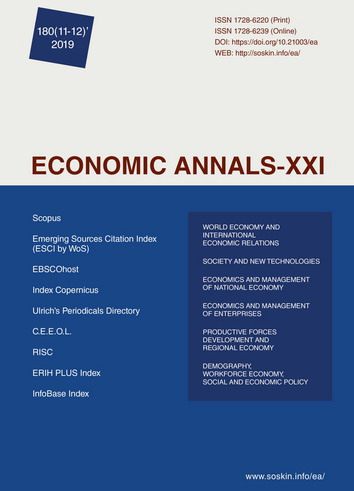Privileges in the economy of the leading East Asian Countries in the 19th-21st centuries: evolution of state regulation and legislative consolidation
Privileges in the economy of the leading East Asian Countries in the 19th-21st centuries: evolution of state regulation and legislative consolidation
Author(s): Aleksey YemelyanovSubject(s): National Economy, Economic history, Political economy
Published by: Institute of Society Transformation
Keywords: Institution of Privileges; Economic Privileges; Commercial Privileges; East Asia; China; Japan; Korea; Economy; Legal Regulation; Corporation;
Summary/Abstract: In the paper, the issue of applying economic privileges is considered by the example of the three strongest economic powers in today’s East Asia: China, Japan, and Korea. In the second half of the 19th century, the historical destinies of these countries were so closely linked that it had and still has an important systemic influence on many areas of their social relations, and especially on the economy.This work presents a comparative, historical and legal analysis of the institution of economic privileges, including trade ones, and their role in the economy of some countries of East Asia in the 19th-21st centuries. An attempt to identify the reasons for the leading economic position of individual countries in East Asia (China, Japan, and South Korea) and patterns in their legal policies has been made based on the analysis of socio-economic development under the institution of privileges in the economic sphere.The results obtained after the analysis of modern economic development trends in the Asian countries have led to the conclusion that they have entered a period of transformation and search for new effective tools for socio-economic development. Today, taking into account the impact of geopolitical factors, the features of the economic globalization and the influence of corporations on the country’s economic system, the principles and tactics of interaction between the state and business have been changing.
Journal: Економічний часопис - ХХІ
- Issue Year: 180/2019
- Issue No: 11-12
- Page Range: 12-20
- Page Count: 9
- Language: English

